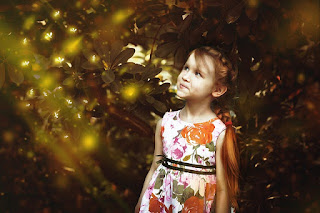 As I've mentioned a couple of times on this blog already, I have a bit of a food obsession. I love cook, to go restaurants, to talk about food, to think about what I'm going to eat, and pretty much every other activity surrounding food. And like all parents who have a kind of intense hobby, I wanted to groom my children to be into it too from the time they were born.
As I've mentioned a couple of times on this blog already, I have a bit of a food obsession. I love cook, to go restaurants, to talk about food, to think about what I'm going to eat, and pretty much every other activity surrounding food. And like all parents who have a kind of intense hobby, I wanted to groom my children to be into it too from the time they were born.
I had read the studies about babies learning to like the flavor of the food mom ate because it was reflected in the amniotic fluid. I knew that data showed that babies were most receptive to the taste of new foods between 4 and 8 months, and that items introduced at this time would feel like culinary home to them for the rest of their lives. I had seen the papers describing the fact that children who grew up in homes where adults consumed a varied diet would be far more
likely to grow into adults who did the same. I had done my reading and I was ready to raise little gourmands.
likely to grow into adults who did the same. I had done my reading and I was ready to raise little gourmands.
I ate a healthy, varied diet full of fruits and vegetables while pregnant and breastfeeding, I made all my own baby food, and we fearlessly fed our first born from our plates once she developed the pincer grip. When my daughter was a year old, she ate everything. I remember bragging about this to my boss at the time and him saying
"Oh yeah, my daughter ate everything too until the day she didn't."
"Obviously" I thought to myself, "this will not be MY precious snowflake of a child. I have read the studies and perfectly executed the plan. My child will continue to be an amazing eater forever!"Have I done enough foreshadowing here? Do you see where this is going? I think you do... At roughly 15 months of age, my daughter started dropping foods she previously ate with gusto. First it was a refusal to eat blueberries, then beans, then eggs, and so on. Foods previously eaten with joy were taken off the list of acceptable foods one by one until she was only willing to eat a handful of foods.
 |
| Eating what's for dinner - quinoa and tofu! |
Ms. Satter is a nutritionist and a compassionate writer. She talks at length about the separation of duties between parents and children. Parents have a responsibility to present their children with appealing nutritious food. Children have the responsibility to eat how ever much they would like to eat. This is exceptionally wise advice but very difficult for parents to internalize. It's hard to sit at the table, having rushed home from work and prioritized cooking above everything else, only to have your child whine at the mere sight of what you've produced. It's almost impossible not to feel like a monster when the toddler eats nothing at dinner. Though, of course, Ms. Satter is right that no child has ever starved in a house with a full refrigerator.
It took awhile for our family to go "full Satter." Once we did, it took about a month for our child to accept that the food on the table was all that was on offer. However, in the last month we've had a real breakthrough. My daughter is trying (AND EATING!!!) new foods right and left - mangoes! green beans! horseradish cheddar! quinoa! This is a child who refused white rice a year ago. This method has not only been incredibly successful in getting our daughter to eat, but it has also reduced much of the stress around food in our house. I plan and cook meals without obsessing about whether they'll be eaten. After all, that's not my job. If you're struggling with this, I very much recommend her books. She is a kind-hearted lady that saved this Mom's sanity at dinner.



Follow Us
As busy parents, we're not huge social media types, but we do have some stuff going on...